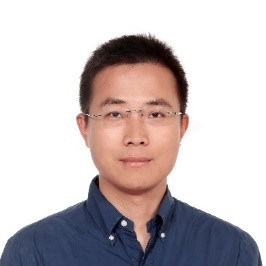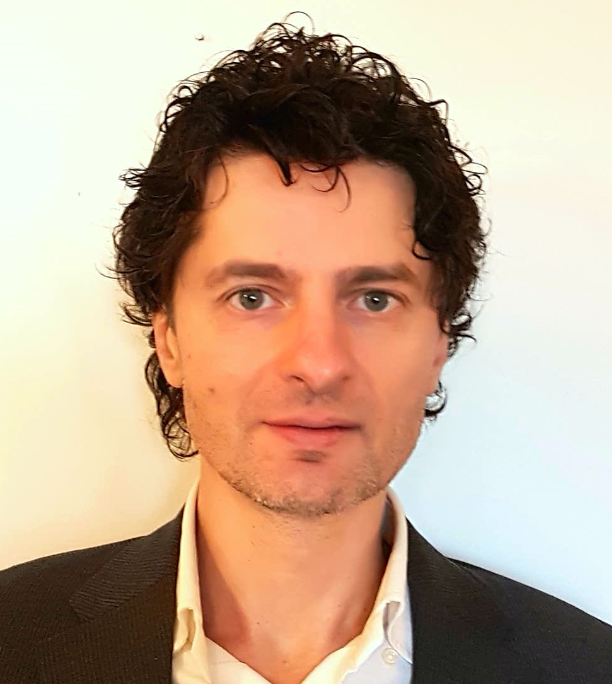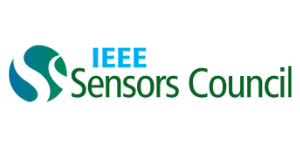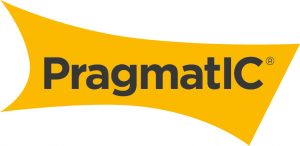Archives: Committee Members
Wei Gao is an Assistant Professor of Medical Engineering in Division of Engineering and Applied Science at the California Institute of Technology. Originally from China, he earned his BS in mechanical engineering at Huazhong University of Science & Technology and his master’s in precision instruments from Tsinghua University. His Ph.D. in chemical engineering is from UC San Diego and he completed a postdoctoral fellowship at UC Berkeley. His research interests are focused on the development of the next-generation of wearable health monitors and micro/nanorobots for personalized and precision medicine. He is a recipient of IEEE EMBS Early Career Achievement Award, IEEE Sensor Council Technical Achievement Award, Sensors Young Investigator Award, MIT Technology Review 35 Innovators Under 35 (TR35) and ACS Young Investigator Award (Division of Inorganic Chemistry). He is a World Economic Forum Young Scientist (Class of 2020) and a member of Global Young Academy (Class of 2019). For more information about Gao’s research and publications, visit www.gao.caltech.edu/.
Xiaojun Guo
Dr. Xiaojun Guo is currently Professor with Department of Electronic Engineering, Shanghai Jiao Tong University, China. He completed his PhD in Electronic Engineering at University of Surrey, UK in 2007. Before joining Shanghai Jiao Tong University in 2009, he worked in Plastic Logic (now FlexEnable), UK. His research interests include device technologies (transistors, sensors, displays and energy harvesters), hybrid transistor circuit design, heterogeneous integration architectures, and disruptive manufacturing approaches towards making friendly “human-machine-environment” interface electronics. He has authored more than 70 technical papers in international journals, and given more than 20 invited talks in international conferences. He serves as Chair of IEEE EDS Flexible Electronics and Displays Technical Committee (2016-2019), Senior Editor of Flexible and Printed Electronics, and Editor of IEEE Transaction on Electron Devices and Journal of Electron Device Society.
Dr. Tse Nga Tina Ng is an Associate Professor in the Department of Electrical and Computer Engineering at University of California San Diego (UCSD), USA. Her research focuses on devices and fabrication methods for flexible printed electronics: http://flexible-electronics.ucsd.edu/ She received her PhD in Physical Chemistry under the supervision of Professor John Marohn at Cornell University. Subsequently she worked at Palo Alto Research Center before joining UCSD in 2015. Her work on printed systems has received the 2012 Innovation Award from Flextech Alliance, named Runner-up for the Wall Street Journal Technology Innovation Award, and received second place in the 2017 Bell Lab Prize and is named a Hartwell Investigator in 2017. She is on the Editorial Board of the journal Flexible Printed Electronics and ACS Applied Electronic Materials.
Joseph Sylvester Chang
Corne Rentrop
Corne Rentrop (MsC.) works at the Holst Centre in the hybrid printed electronics group as senior research scientist and project-manager for “pilot-line projects” and “stretchable electronics”. In his function Corne is active in project development (Bilateral and Public Funded) and monitoring the scientific progress.
Corne is a Chemical engineer in polymer science and coatings at the Technical University of Eindhoven. He In his current function Corne is involved in the development of a baseline process for stretchable electronics including substrate conditioning and printability. Corne is also active as spokesman for the OE-a workgroup “hybrid printed electronics”.
Sheng Xu
Dr. Xu is currently an assistant professor at UC San Diego. He received his B.S. in Chemistry and Molecular Engineering from Peking University and Ph.D. in Materials Science and Engineering from Georgia Institute of Technology. He did his postdoctoral studies in stretchable electronics at the University of Illinois at Urbana-Champaign. His group is interested in developing soft wearable electronics for health monitoring and human-machine interfaces. His research has been presented to the Congressmen and Congresswomen as testimony of NIH extramural research during a Congressional Hearing. He has been recognized by many awards, including NIH Maximizing Investigators’ Research Award, NIH Trailblazer Award, Wellcome Trust Innovator Award, MIT Technology Review 35 Innovators Under 35, SPIE DCS Rising Researchers, IEEE Sensor Council Early Career Technical Achievement Award, and MRS Outstanding Young Investigator Award. He is a Kavli Fellow of the National Academy of Sciences and a Frontier of Engineering of the National Academy of Engineering. He serves Nano Research as a Young Star Editor.
Mike Turner
Mike Turner obtained BSc and PhD from the University of Bristol, working on the synthesis of new organometallic complexes, before moving to the United States to investigate new routes to polyphosphazenes. He returned to the UK to work at the University of Sheffield on the mechanism of the Fischer-Tropsch reaction and was awarded a Royal Society University Research Fellowship to investigate the synthesis of novel polymers. He moved to the University of Manchester in April 2004 to a Chair in Materials Chemistry and to be Director of OMIC. Current research focusses on the synthesis of novel conjugated organic materials, the processing of these materials into devices such as light emitting diodes, solar cells and transistors and the application of these devices.
Prof. Matti Mäntysalo received the D.Sc. (Tech.) degree in electrical engineering from the Tampere University of Technology, Tampere, Finland, in 2008. From 2011 to 2012, he was a Visiting Scientist with the iPack Vinn Excellence Center, School of Information and Communication Technology, KTH Royal Institute of Technology, Stockholm, Sweden. He is currently a Professor of Electronics with Tampere University. His current research interests include printed electronics materials, fabrication processes, stretchable electronics, sensors, and the integration of printed electronics with silicon-based technology (hybrid systems). He has published over 100 papers. He is active in IEEE, IEC, and Organic Electronic Association. He was a recipient of the Academy Research Fellow Grant (2015-2020) from the Academy of Finland. He has awarded by Nokia Research Center from the first inkjet printed GSM baseband integration.
Luca Catarinucci is Associate Professor in Electromagnetic Fields at the Department of Innovation Engineering – Univesity of Salento, Lecce, Italy, where he teaches “Microwaves” and “Electromagnetic Solutions for Hi-Tech”. Besides various activities in the classical areas of Electromagnetics, in 2005 Catarinucci begun a new research tread referred to Radiofrequency Identification Systems (RFID), dealing with reader and tag antenna design, realization of microwave circuits for the integration of UHF RFID Systems with sensor networks, design of automatic platforms for the over-the-air performance evaluation of RFID tags, prototyping of fully passive RFID tags provided with computational and sensing capabilities, study of new antennas for handheld RFID readers, 3D-printing in Electromagnetics and in RFID, flexible tags, and introduction of Doppler-based RFID-inspired backscattering modulation.
Catarinucci authored more than 150 scientific works of which 69 international journals, 4 chapters of books with international diffusion and more than 80 proceedings of international conferences. Moreover, he holds 2 National Patents about RFID technology.


















